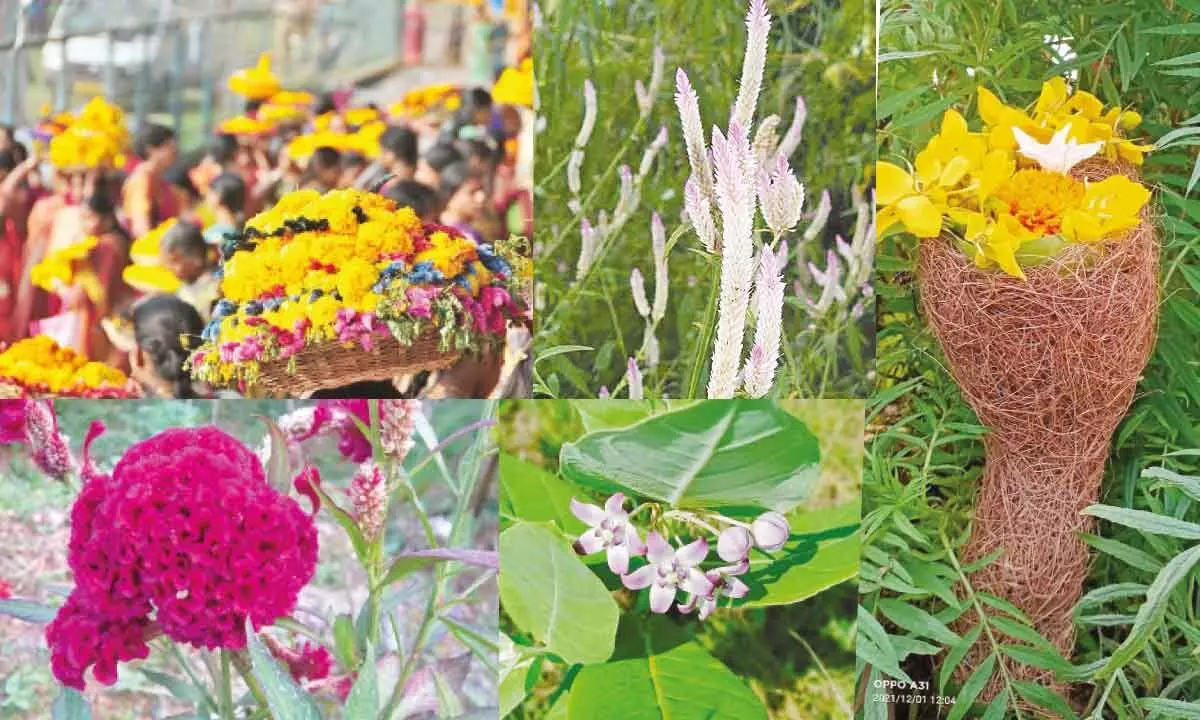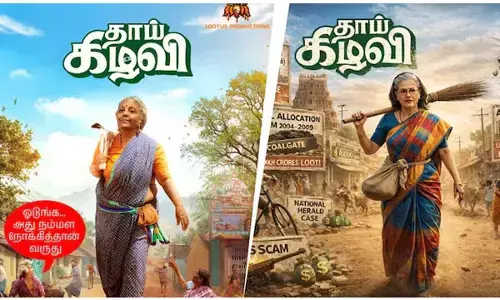Where have all Bathukamma flowers gone?

The once abundant Bathukamma flowers are at the verge of extinction
♦ Govt as well as citizens should take ownership of safeguarding these delicate blossoms
♦ Indiscriminate harvesting has led to overexploitation of these resources
♦ Tangedu flower, an essential part of our Bathukamma festival has become scarce
♦ Preservation of these flowers plays a crucial role in promoting biodiversity
Hyderabad: Amidst the bustling real estate construction and the relentless expansion of urbanisation, the once abundant Bathukamma flowers find themselves at the precipice of extinction, their numbers dwindling to a point where they can scarcely meet the demands of this cherished festival. These once-nurtured blooms, which flourished in the lap of nature, have now transformed into a rare spectacle as the festival season beckons, with its arrival typically coinciding with the waning days of the monsoon.
Speaking to The Hans India, Dr Chelmala Srinivasulu, Professor in Zoology, Osmania University says, “While many of these flowers are inherently seasonal, the onus of their preservation should not solely rest on the government but also, significantly, on us as responsible citizens. It is imperative that we collectively take ownership of safeguarding these delicate blossoms. It starts with conscientiously identifying and preserving fallow lands that should not be cleared of their valuable herbs and shrubs, allowing these areas to remain cloaked in vibrant greenery. Though the government can certainly encourage such initiatives, it is our individual and collective responsibility to shield these pockets of land. In doing so, we perform an invaluable service to our society.”
By protecting the rich biodiversity of these regions, we yield intangible benefits that extend far beyond the immediate. The growing awareness surrounding Bathukamma must translate into a shift in our practices– we should prioritise the collection of these flowers over their purchase. The act of indiscriminate harvesting has led to the overexploitation of these precious resources wherever they thrive. Each time we contribute to the transformation of green landscape into barren brown, the damage is, without a doubt, substantial.
The need for safeguarding these ecological havens should not be a matter for the government alone; it is a shared responsibility of common citizens to preserve our green cover.
The conversion of lush green areas into barren expanses results in the local extermination of these vital species, prompting people to encroach upon the remaining green territories, thereby unsettling the delicate ecological equilibrium. Hence, it is incumbent upon us to protect and nurture these green sanctuaries at a grassroots level, ensuring their enduring existence.
Dr Bandaru Sujata Shekhar, researcher on Bathukamma, says, “In the cherished memories of our childhood, we recall the presence of once-ubiquitous flowers like Muthyala Puvvu, Seethammavari jeda (celosia cristata) which now seem to have vanished from our surroundings. Take, for example, the Tangedu flower, the pride of our State and an essential part of our Bathukamma festival. In times gone by, the roads of Telangana would be adorned with a profusion of these vibrant blooms, creating a striking visual spectacle for travelers. However, today, the sight of Tangedu in such abundance has become a rarity. It’s disheartening that we have reached a point where the very sight of these flowers seems unnatural in our modern landscape. At this juncture, it becomes imperative for the government to take proactive initiatives to protect and restore the presence of these culturally significant and ecologically valuable flowers.”
R M Dobriyal, Principal Chief Conservator of Forest, Telangana government says, “Efforts are being made to conserve these naturally grown flowers, particularly the Tangedu, in parks and recreational centers. The preservation of these indigenous flowers in such spaces not only adds to the aesthetics but also plays a crucial role in promoting biodiversity and maintaining a connection to our culture and environment.”










